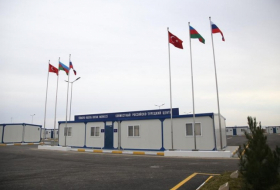The US president will make his appeal, which the remain campaign are counting on to tip the balance decisively, both in a newspaper article and remarks at a Downing Street press conference on Friday afternoon.
The importance of the UK as a key figure inside the EU club will be symbolically underscored when Obama again meets David Cameron, Angela Merkel, Matteo Renzi and François Hollande in Hanover, Germany, on Monday to discuss Syria, Libya and the consequent migration crisis. The implicit message is that the UK outside the EU would not have been invited to such a high-level transatlantic conclave.
Obama’s long-awaited intervention is expected to set out not only a positive case for Britain’s influence in Europe, but also describe the UK’s chances of striking independent trade deals with the US if it is outside the European Union as fanciful.
The extended Obama endorsement – effectively over four days – will come at the end of the leave campaign’s most difficult week, including the Treasury intervention on the costs of Brexit, further prestigious third-party endorsements and a controversial appearance by the Vote Leave campaign director Dominic Cummings at the Treasury select committee.
There is a growing confidence in Downing Street that the intellectual tide has turned, if not yet the polling. One Downing Street official at the heart of the campaign said: “We are killing them with the arguments and we are killing them in the campaign. It is increasingly clear that leave as a campaign is under-resourced, and is simply incapable of putting up an argument for what Brexit looks like. We have Obama on our side and who have they come up with – Marine Le Pen”. The Downing Street source said Obama’s advice would be given as a friend.
Obama’s carefully choreographed intervention accompanied by his wife, Michelle, and including a birthday visit to the Queen, will come as part of a stripped-down, mainly sombre bilateral in which the two sides will eschew the “bro” friendliness. Some of the talks will focus on the setbacks in the Syrian peace process in Geneva and the new Libyan government’s reluctance to allow western troops into the country to prevent Islamic State consolidating in Sirte in the north. They are also expected to discuss “shaping the attack” on Mosul, the chief Isis citadel in Iraq, an assault that may occur early in the presidency of Hillary Clinton. Downing Street, like Obama, is working on the assumption that Clinton will win in November.
The two men are also likely to discuss how Europe and America can increase intelligence-sharing on the movement of jihadis. The perception is that the US has been reluctant to share intelligence with EU agencies.
The bilateral will be the first extensive meeting between Cameron and Obama since the American president, in a candid interview in the Atlantic magazine, suggested Cameron had become distracted from the Libyan crisis following the 2011 overthrow of Muammar Gaddafi. Obama’s remarks caused huge offence inside No 10, and since then key White House figures such as the deputy national security adviser Ben Rhodes have been stressing it was the Obama team that failed to see “the trapdoors” in the Libyan intervention.
But the media focus will be on the tone of Obama’s Brexit intervention, including an article in the Daily Telegraph, chosen as the most Eurosceptic upmarket newspaper. Obama will argue that the EU is one of the cornerstone institutions built after the second world war that has made the world safer and more prosperous. He will argue that UK influence in the world will be diminished outside it.
It is not in Obama’s nature to threaten, but US officials were pointing to the 2015 remarks of the US trade representative Michael Froman that the US is “not particularly in the market for free trade agreements with individual countries”.
“I think it’s absolutely clear that Britain has a greater voice at the trade table being part of the EU, being part of a larger economic entity,” Froman said, adding that EU membership gave the UK more leverage in negotiations.
The former EU trade commissioner Lord Mandelson, a strong pro-European, concurred, saying the reason Obama’s intervention would hurt the leave campaign so much was that leave “has a vision of sitting in the mid-Atlantic freed from Europe and closer to America. But the reality is that they are offering a ridiculous fantasy free-trade area stretching from Albania to Bosnia. The core of this campaign is about prosperity and economics, and the more it is about these issues the more leave loses.”
He added: “Obama is just the right man for those who have not made up their mind or not really engaged with the whole process. He can capture their attention. With luck Boris Johnson will go mad again and say it is all part of a CIA conspiracy.”
But Obama will need to be cautious about the benefits of the Transatlantic Trade and Investment Partnership, a trade deal that is reviled on the left in Britain, including by Jeremy Corbyn, the Labour leader.
Polling shows that Obama retains his stardust in Europe, but that has not stopped the Conservative right – ironically normally the most passionate supporters of the transatlantic relationship – doing all it can to delegitimise Obama’s imperial intervention in advance. In a YouGov poll commissioned by CapX and much cited by Eurosceptics such as Tim Montgomerie, only 4% say they believe Obama opposes Brexit because he cares about Britain. Just over 50% believe Obama opposes Brexit for the functional, self-interested reason that it is easier to deal with one bloc. A further 24% believe Obama thinks UK EU membership is right for global security and 14% see it as a personal favour to Cameron.
That cynicism may reflect Obama’s perceived lack of interest in Europe and the Middle East. Rhodes, in a recent interview, admitted: “What he has done is to refuse to allow his presidency to be dragged into the quicksand of the Middle East. He has found a way for the Middle East not to be the sum total of American foreign policy.”
But significantly Rhodes listed the pivot to Asia, climate change, normalisation with Iran and Cuba as his signal overseas achievements. His relations with Europe did not feature.
More about:
















































